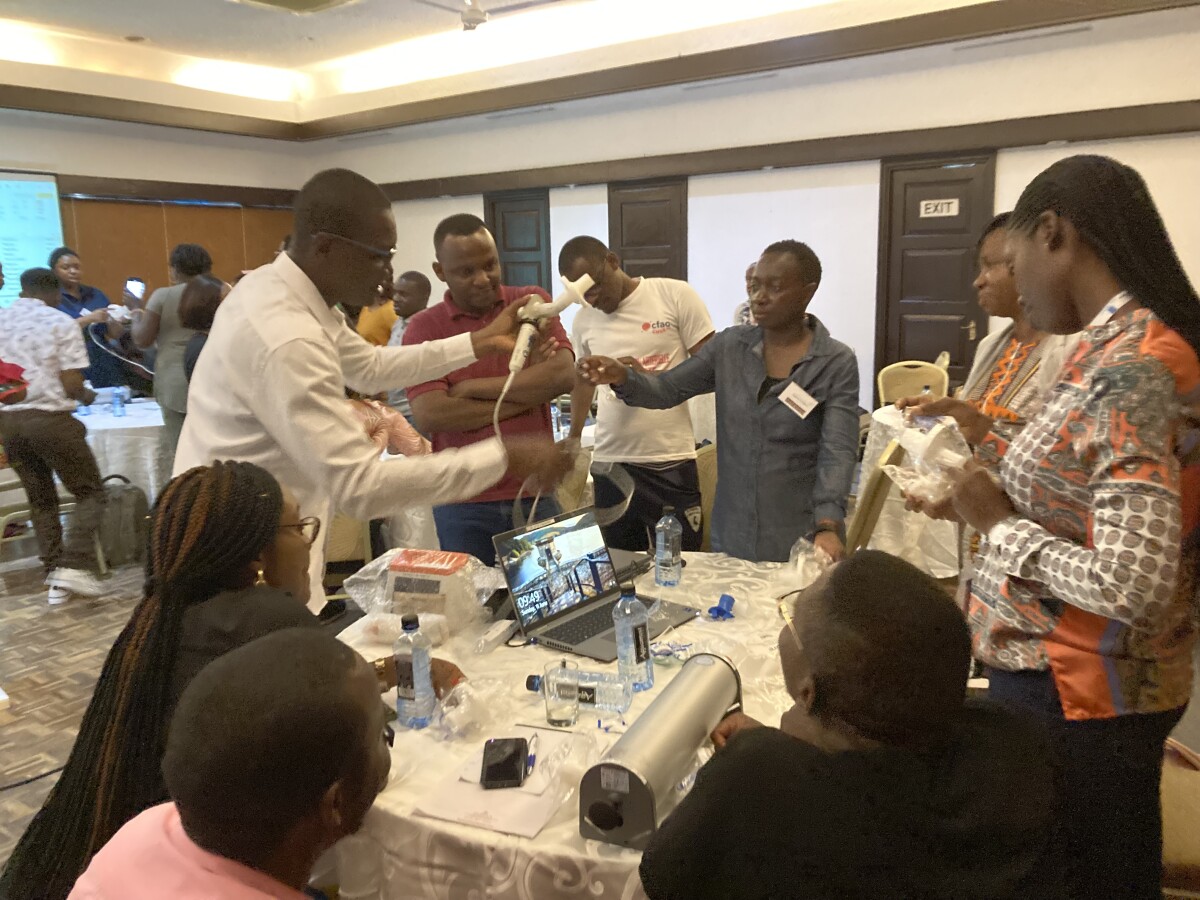PATS MECOR – A Breath of Fresh Air

I recently had the pleasure of experiencing my first Pan African Thoracic Society (PATS) Methods in Epidemiologic, Clinical and Operational Research (MECOR) – “PATS MECOR” course. Lung health clinicians and researchers from across Africa gathered in the beautiful surroundings of Mombasa, Kenya to develop research projects on lung health. This is a course that was established in 2007 building on the American Thoracic Society’s successful MECOR model. In 2018 Professor Kevin Mortimer became the course Director with an aim to transfer the leadership into African hands and build up the African faculty to enable PATS MECOR to become a course led and delivered by African experts for research-interested but inexperienced African clinicians. This transition has been a great success with Professor Refiloe Masekela based in Durban and Dr Uju Ozoh based at the College of Medicine of the University of Lagos, who themselves were participants on the first PATS MECOR courses, now co-Directing the programme. More recently Cambridge-Africa became involved – Professor Mortimer saw that the aims of the course in developing research on lung health in Africa aligned perfectly with the objectives of Cambridge-Africa in supporting African researchers and developing research collaborations between African and Cambridge based researchers. We are delighted that Kevin is now an Affiliate Professor in the Department of Pathology at Cambridge which will allow this partnership to become even stronger.
Participants and Facilitators of the 2023 PATS MECOR course
In Africa, the majority of lung health research and clinical services focus on TB. There is an increasing recognition of the impact of other factors on lung health, including household air pollution in a continent where most people use solid fuels such as charcoal wood and dung, with women and children having the greatest household exposure. Africa is the continent with the largest proportion of deaths associated with household air pollution accounting for more than half of deaths of children under 5 years from pneumonia. Household air pollution also results in an increasing burden of asthma in Africa as well as respiratory infections, cardiovascular disease and neurocognitive impacts. Outside air pollution is increasing. With rapid urbanisation more people are exposed to this as well as contributing to it through greater use of polluting transport in cities. Rapid industrialisation also a factor and there is often little regulation of these contributors to pollution. At the PATS MECOR course many of the participants had first hand experience of the rising exposure to occupational causes of lung disease arising from the rapid increase in mining, including unregulated artisanal mining commonly involving children, which is often sited very close to where people live, sometimes so close that it undermines people’s actual homes. All of these exposures and the paucity of research on lung health inspires the participants of PATS MECOR to undertake research and raise awareness on the rising and largely unrecognised burden of respiratory disease in Africa.
Photo sent by PATS MECOR Participant Tony Kayembe of the village stream in DRC where villagers wash and clean their clothes impacted by mining.
So how does PATS MECOR actually work? The week-long course is open to applicants from across Africa who wish to undertake research on lung health and has three levels running concurrently, supported by facilitators and research mentors. The first level is aimed at those who have little or no experience of conducting research and enables the participants to develop a research project and learn key element of research design. To be selected to join the second level course, applicants need to have already attended level 1. Level 2 enables participant to hone their research skills and knowledge gained at level 1 and develop the research they undertook following the level 1 course with a more in-depth focus on study design and analysis. On the third level, participants bring a draft of a journal article and the course focuses on academic writing to support publication and grant writing, as well as covering some more advanced aspects of research.
Participants also have the opportunity to attend workshops on air quality monitoring and spirometry (see picture below) and learn to use the equipment for these activities that are often incorporated into their research project.
Cambridge-Africa is keen to support this initiative as it is an important area for research in Africa. It aligns well with the Mastercard Foundation Programme with its focus on sustainable futures and climate resilience in Africa and also the growing focus on respiratory health research in Cambridge with the opening of the Victor Philip Dahdaleh Heart and Lung Research Institute in 2022. We look forward to working with the growing numbers of researchers working on related areas in Africa and across many Departments within the University of Cambridge.
By Corinna Alberg, Co-Programme Manager, Cambridge-Africa

